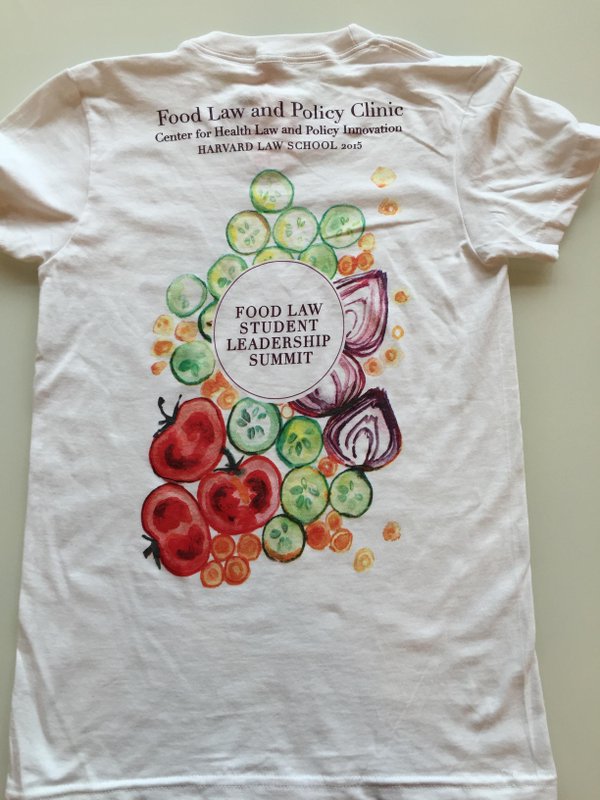By: Tanisha Edwards, University of North Carolina School of Law
 At the Food Law Student Leadership Summit, I had the opportunity to talk about food with people who feel as passionately as I do. Law students from all over the country came together to feed off each other’s knowledge and excitement (no pun intended); together, we developed ideas for legal remedies to improve the food system. Not only did we eat fresh, locally-sourced foods from local Cambridge and Boston businesses and food trucks, we also discussed the social, political and environmental impacts of food.
At the Food Law Student Leadership Summit, I had the opportunity to talk about food with people who feel as passionately as I do. Law students from all over the country came together to feed off each other’s knowledge and excitement (no pun intended); together, we developed ideas for legal remedies to improve the food system. Not only did we eat fresh, locally-sourced foods from local Cambridge and Boston businesses and food trucks, we also discussed the social, political and environmental impacts of food.
Concentrated animal feeding operations, or CAFOs, were a major topic of discussion and the subject of the keynote presentation on Saturday night. I was ecstatic to discuss CAFOs because of their large impact on my native state of North Carolina. Poultry is a growing industry and the waste from food production negatively affects the air, water and health of the people living next to these large facilities and their adjoining waste ponds. From a legal perspective, challenging the food industry has many barriers but many of the speakers at the Summit identified that creativity, especially learning from different disciplines, is the best approach. Think about the lessons we can learn from workers’ rights, environmental justice, and public health.
We also challenged ourselves to think about food access and which communities are able to obtain healthy and affordable foods. There continues to be a systemic gap between low socio-economic communities/communities of color and consistent access to affordable, healthy foods. Unequal access to nutritious food is not just a health problem, but also a challenge for community sustainability. One way to address this problem is to decrease food waste and teach communities about food preservation. As a country, we have to get on the same page that affordable, healthy food for all communities is a pressing issue.
This summit was geared to discuss legal and policy strategies to encourage Americans to eat better and to push for more transparency from both food companies and federal agencies. Although the weekend was short, I left with good friends, good food, and even better ideas.


Health Law & Policy, Commentary
Braidwood Management v. Becerra: Updated FAQs for Health Advocates and Providers
July 22, 2024